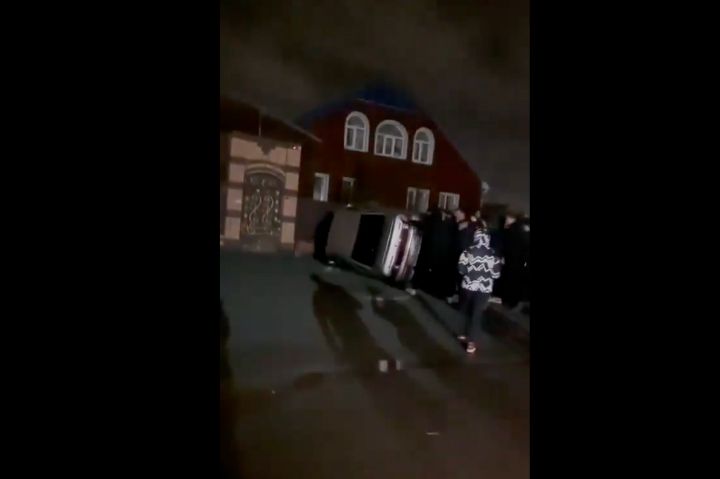Dozens of people were detained after riots erupted in Korkino, a city near Chelyabinsk in southern Russia, following the fatal stabbing of a local woman who worked as a taxi driver. Outrage swept through the town on October 24 as residents gathered to target members of the Romany community, whom they blamed for the woman’s death.
According to eyewitnesses and reports on local Telegram channels, the mob converged on a house linked to the Romany community, hurling stones and Molotov cocktails at the property. When special forces arrived, the mob scattered across the city, setting fire to two additional houses and several cars they believed to be associated with Romany families. Swift action from the Emergencies Ministry managed to contain the fires, preventing further spread.
Tensions ran high as word spread that a 17-year-old suspect had been detained, allegedly connected to the murder. Reports suggest the suspect may have been a passenger in the victim’s taxi when an altercation led to her being stabbed multiple times. However, the regional Investigative Committee has yet to confirm the suspect’s involvement, further fueling local unrest.
Regional Governor Aleksei Teksler dispatched two deputies and Russian Guard special forces to Korkino, promising aid to the victim’s family. Meanwhile, members of the Romany diaspora fled to neighboring towns, fearing further violence as more locals arrived at the police station to demand action and support those already detained.
In the Chelyabinsk region (Korkino), local residents have set fire to at least two Roma houses following the murder of a local taxi driver.
— Sota News (@sotanews) October 24, 2024
Security forces are detaining protesters, and representatives of the Roma community are fleeing to neighboring cities. People are… pic.twitter.com/2OuUMP8YZQ
As the investigation continues, the death of the taxi driver has exposed deep-seated social tensions in Korkino, leaving authorities scrambling to restore order. The rapid escalation highlights the fragility of community relations in the region, raising questions about whether justice—and calm—can be restored.












